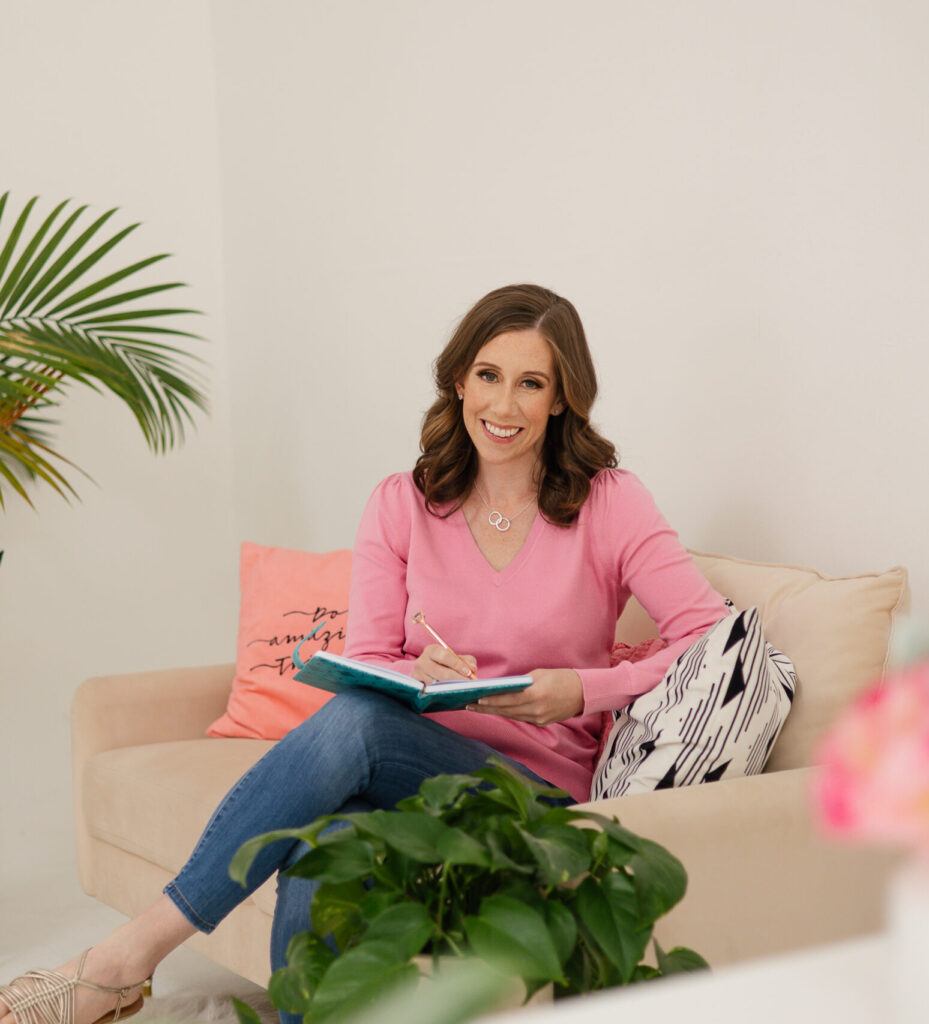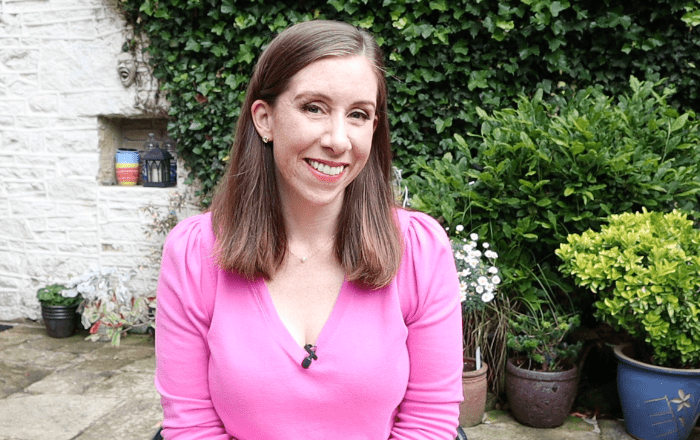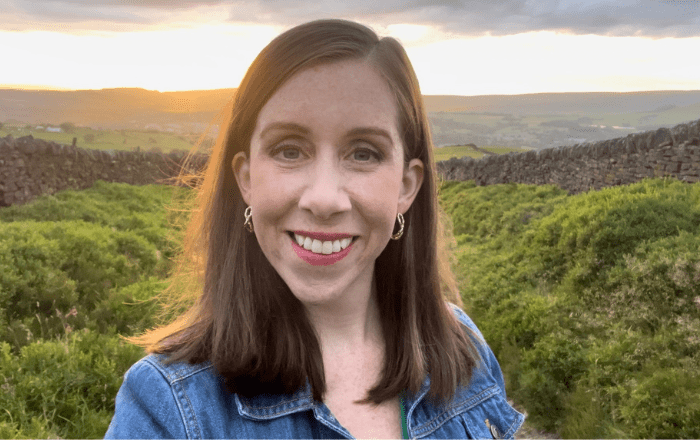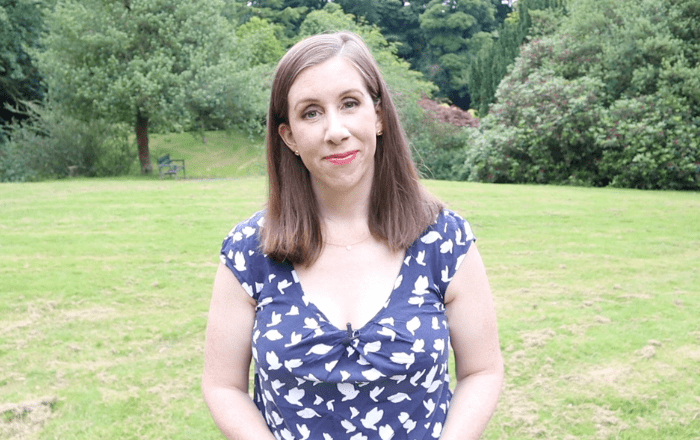In my drinking days, I must have googled “Am I an alcoholic?” so many times.
I didn’t think I actually was an alcoholic, but my drinking was making me feel really bad.
Fast forward to today and an awful lot has changed.
Not only am I ten years sober, but my thoughts on the “alcoholic” label are a whole lot clearer.
If you’re feeling as stuck and confused as I was, I hope today’s blog helps…
Key points
What is an alcoholic anyway?
It’s a genuine question. How do you define it? Is it someone who regularly drinks above the recommended guidelines or often has more than they intended to? Or is it someone who feels they have to drink every single day? It’s so hard to define.
Some studies have found that only ten percent of excessive drinkers are officially “alcohol-dependent”. Even if you fill out an online questionnaire about your drinking, it won’t tell you that you’re an alcoholic – it will refer to an alcohol use disorder instead.
Alcohol vs other drugs
We don’t obsess about labels when it comes to other substances. Smokers never wonder if they are nicotine-oholics or whether they have a disease. They’re never going to question why they can’t just “control” their intake of cigarettes or why they can’t smoke “responsibly”.
The difference is that we see nicotine as a drug and we understand that if you use an addictive drug, then you’re probably going to get addicted to it. It’s not seen as a reflection on you, your morals or your inner strength. It’s just what happens.
A controversial opinion
I think the only people who like to use the word alcoholic are those who benefit from labelling others. It suits the alcohol industry to pretend that there’s such a thing as “normal” or “responsible” drinking. Other drinkers benefit from this too. They want to believe that they’re fine, they’re normal, they’re not doing anything wrong… and people who quit are different from them.
No need for labels
As you might have guessed, I don’t call myself an alcoholic – I don’t think I am at all. I think I had a very normal relationship with alcohol, because it’s normal to get addicted to addictive substances, especially when they’re romanticised and glamorized.
Unless the “alcoholic” label empowers you to change, feel free to ditch it. If you quit drinking, all it really means is that you’re a non drinker. You’re alcohol free. A teetotaler. You’re enjoying a hangover-free lifestyle. And that’s it!
Looking to create a sober life you love? Click here to find out more about my Getting Unstuck course.




44 responses
I LOVE this post.
I am assuming that the term “Alcoholic” is around 90-100 years old. Think of the progress we have made in other areas in the last 90 year/ Why not this one?
Putting all the blame on the drinker is a pretty tired and misdirected concept. Being alcohol free should not be about self-deprecation. It’s about the joy you experience waking up every day being free of an addictive and toxic substance. It’s the exact opposite and so glad to see you speak about this Kate.
We all know who is benefitting from this one.
Thanks Jean, it is an outdated term and not very helpful either in my opinion which is why I never use it. Alcohol-free has a much better and positive ring to it 🙂
Once again you hit the mark with this blog, Kate – thank you!
You’re spot on again, Kate! I like your fire in this one. I’m not an A-word either. When I’m offered an alcoholic drink, I say “no, thanks” and request whatever suits my taste at the moment. When pressed for explanation, I simply say “I don’t like how alcohol dulls my mood.” Thank you for all your words of wisdom.
Love that explanation “I don’t like how alcohol dulls my mood” – good one!
You know that really got me thinking about the terms we use (or some use) to describe drinkers. Labels, labels, labels.
I love the way you look at things Kate. Thanks for this video. I’m not an alcoholic either!
Hi, Jenny
Two things:
In my far too-long experience of trying to be alcohol free, I nearly wrecked my life by constantly stopping, rationing, then resuming drinking because it “helped” . Only when I couldn’t wake up one morning after a heavy day’s drinking did I have enough panic and self-hatred to reconsider how I could possibly change for good.
Somehow I began to receive blogs from Kate. I read them for about six weeks, during which my mindset – one of Kate’s key teaching points – really began to change. I am 4 weeks into the course. I haven’t once considered buying alcohol or drinking it when I’ve gone to the pub with family. I have all the reasons Kate has given me to explain ( not excuse) why I’m no longer drinking . My mindset has completely changed, and I have come to know how much happier I am with myself. If you can afford the course, do it and be inspired.
I completely agree regarding anybody being ‘labeled’ an alcoholic is unfair & unrealistic. As you day, what is an alcoholic?
However a lot of my family & friends use the word & ‘label’ people with this.
I have just done 29 weeks alcohol free, then went up to stay with my son for Easter & decided it was boring not joining in with a social drink. ( He & his wife are what I call heavy drinkers) So I then broke my aim to stay sober for life & have since had a few drinks in the events with my husband , but always feel depressed the next day & worry about all the stupid things I said. I’m at a crossroads where I don’t know whether to completely quit, or have a drink when I feel I need it. I never drink during the day, but used to. It scares me sometimes after I’ve had a drink in the evening, whether it could creep back on me, which would be a disaster. I have some very good friends who I know think , She’s an alcoholic & themselves attend the AA group. Which I don’t condemn them for going there but I don’t like the way they use ‘ I’m an alcoholic before they say anything. Yes I agree with you Kate. Thank you
If you’d like my help to make the alcohol-free lifestyle stick permanently, my Getting Unstuck course would be a great fit for you, especially as you have experienced a decent sober streak already: https://thesoberschool.com/course/
Well said Kate.
Absolutely love your analysis of this outmoded term.
Brilliantly put!
Personally I love to say I’m alcohol-free, and all the happier for it !
Thank you Tricia, alcohol-free describes the happiness of the lifestyle upgrade much better ❤️
Thank you so much for this video Kate! You are so right! There is no reason people should use this unfair and negative word to label themselves or other people. And just because a person has chosen to free their lives of alcohol, does not mean they have anything wrong with them… just the opposite. Thank you, as always, for your insight.
Exactly Karen, unhelpful labels are my pet hate!
I just consider myself a non-drinker. One who has decided it is in their best interest not to drink. I do not label and therefore I do not want to be labeled.
11 months sober thanks to you! I helped a little lol
Cheryl
Well put Kate.
I love being alcohol free. I am so happy l quit drinking. I honestly felt like a “slave” to the red wine but now l don’t even think about it anymore.
I learnt so much on your course and have continued to educate myself on how bad the drug is.
It does get easier and l am so grateful to you on helping me quit drinking.
I am so glad l came across your course when l googled “ am l drinking too much”.
I’m so pleased that educating yourself about the alcohol trap has helped you achieve an alcohol-free lifestyle – it’s truly the best way to live 🙂
It had me in its grip for years and years. binge drinking every week. I’m now just over 14 months free of it. One of the best decisions I’ve ever made Kate thank you
Freedom from the alcohol trap – priceless!
This topic is very timely, Kate. I have thought about the word about “ alcoholic” many times. I personally loath the word for all its negative connotations. I recently was in a place that subscribed to the long standing teachings of Bill W. I really struggled with the “A” word and some tried to push me into using it and I would just not. I said I was addicted to alcohol every time-which I believe is the case. The term normies was referred to those who were not “alcoholic” drinkers. It was nails on the blackboard to me. I think that you are spot on in this video. The A word is not empowering to me. The A in addiction is. I thank you for taking this stance because it is very important. The teachings by Bill W are 100 years old and not updated with the facts that you share in your course. Yet society still knows only the lessons, terms and words taught in The Big Book. I can’t pretend to not know all science surrounding alcohol addiction. I think that the drinking labels help the observer. It’s not mainstream yet to consider alcohol as addictive/instead you have a physical affection from which you are never cured; instead a lifetime of meetings are the only path to sobriety. Thank you for courses great course contents. It’s a breath of fresh air, quite educational, intellectual and freeing. Thank you, Katr
Thank you for your kind and wise words Marcie, I couldn’t agree more ❤️
I love your posts Kate but there are defo some people who are in a different category, who can just stop after a couple of drinks, no problem. I know a few.
Hi Buddy, I agree there are people who can take it or leave it. There are a few reasons for this. They don’t enjoy the feeling of being drunk or the taste of alcohol or they have other coping mechanisms. Not everyone buys into the idea that drinking is the key to fun. Some people see alcohol for what it really is, straight from the start.
So helpful. Thank you
I did this!! I googled to try and figure out if my drinking fitted this term! After a lot of introspection I realise I was what I like to call a ‘drunkaholic’ I loved to party, what’s the point in one glass?? Let’s have a bottle and then another and never let the party end!! But, I got fed up with the hangxiety, the wasted days ‘recovering’, feeling tired to my bones, my skin being terrible, eating rubbish food…the list goes on. I’m now 115 days sober and loving my new lifestyle. I wake up fresh every morning and it feels fantastic! Thank you so much for this blog!
Well done on 115 days, that’s amazing! The benefits keep on coming, both mentally and physically so stick with it 🙂
I absolutely love this talk! Thanks so much, Kate! I actually had this conversation with some lawyer friends of mine just last week and I said the same thing, people that have quit smoking are not called nicotinaholics and they are not referered to as in recovery forever but people that have stopped drinking are! I hate the term alcoholic and never use it. Thanks, Kate!! I am almost 4 years alcohol free since taking your course❤️
I’m not an alcoholic nor do I have a syndrome nor a disorder
I don’t drink and that’s it
I’m working on my response to people who push for reasons why but the easiest one so far has been to ask them why they do and listen while they try and justify themselves and I just nod and smile
Their questions say more about them than you, so a good tactic to flip the discussion.
I love this approach
I love your comment, saying other addictions don’t have labels like nicotineaholic. Why should we be labeled. It is very negative and uneccessary and I agree with you wholeheartedly.
Kate ,I loved this video. For years I wrestled with researching am I an alcoholic, what is an alcoholic, should I stop drinking, do I drink enough for it to be a problem; the questions could go on and on. Also others close to me never saw that I had a problem with drinking alcohol and didn’t understand why I thought that I did. This made it even more confusing to me when finally it hit me after listening to enough of your talks that none of those things mattered, but the fact that I knew that alcohol was a huge negative force in my life and that my relationship with alcohol was getting worse over time, did I give myself permission to commit to dry January then to 100 days of staying alcohol free and now I have a goal of 6 months of living alcohol free. Thank you for helping me liberate myself of the constant self-doubt and self interrogation. None of it really matters. All that matters is that my life is so much better without alcohol and each day alcohol free living gets easier and better, so thank you for all of your wisdom and strategies and concern for all of us women who have walked in your shoes.
It’s how alcohol makes you feel that is the important question to ask yourself. If you’re uncomfortable with how it makes you feel, change it – that simple. If you ever need any motivation to keep going, have a listen to my free pep talk here: https://thesoberschool.com/pep-talk
I also enjoyed this blog and agree that the word alcoholic is not helpful. I drink way too much but can’t seem to find the power or motivation to cut back or stop.
My free wine o’ clock guide will help with motivation, have a listen today: https://thesoberschool.com/wineoclock
I completely get this information & am close to trying out a f lifestyle but scrapping the stigma attached. I found this very helpful to read & makes a lot of sense. It’s an added pressure we can all do without.
Love this post today Kate. I have struggled with this labelling too and I love saying I just don’t drink as my life is better without alcohol rather than I don’t drink because I was an alcoholic. I have t had a drink for over 8 months now and just feel happier and healthier with better relationships with family and friends lots of love xx
I think this is so great Kate. Labels are generally hugely unhelpful in life and only serve to hinder people rather than advance them. For example: I do not consider myself an alcoholic, therefore I don’t see it as appropriate that I enlist in 12 steps. However – drinking is making me feel not great and I’d like some support to do something about it. And here you are!
AA isn’t for everyone, there is another way and I’d be more than happy to show you The Sober School way. Here are the details of my next Getting Unstuck course: https://thesoberschool.com/course/
Thankyou yet again Kate for putting this into a blog. The A word to me seems to be used to justify why we don’t need to quit. I have googled it so many times and decided I’m OK because I only tick half the boxes. I am told by others who dont want to me to follow this AF path that I am ridiculous because I’m not an alcoholic so should therefore continue to drink with them. Or it is so often used by others to justify to us why they dont need to quit. I have been told so many times now by people since I starting going AF that “alcohol isnt a problem for me as I can take it or leave it”. But as so many have mentioned here, it doesn’t matter at the end of the day, if we want to be AF then that is our right and we don’t have to justify that by being an Alcoholic.
I absolutely love this from Sharon and it will go into my response book – I’m working on my response to people who push for reasons why but the easiest one so far has been to ask them why they do and listen while they try and justify themselves and I just nod and smile. Great one Sharon!
It was this kind of thinking that my drinking wasn’t ‘bad enough’ that kept me stuck in the alcohol trap for many years. It wasn’t until I realised I was asking the wrong question and I should have been saying instead “is this good enough for me to carry on drinking”.
I wish I could get my partner to understand this about his own relationship with alcohol, but that is a different battle!
I quit drinking for 20 years and it was not a problem for me. I went to AA meetings to accompany my then husband and we had lots of great sober years together. Fast forward 30 years and I would like to live an alcohol free existence but attending AA meeting after meeting and diving into the sub-culture has been an issue for me even though I have put my feet in the water. I don’t really care about the label, but the cultural issue, the label, the whole of the program is…I am looking forward to your introduction into living life without alcohol and not being part of that sub-culture either. It’s crazy that it’s an accepted societal drug for many many moons.
Thank you!!! I’ll check into your approach and see what happens! XXOO
Any approach that helps someone quit drinking is helpful, but there are more ways to stop drinking than AA or rehab: https://thesoberschool.com/an-alternative-to-aa-why-my-approach-is-different/
At first going to AA and labeling myself as an alcoholic was freeing, but only I was within that AA circle. I soon realized that labeling myself that way in the outside world was a different story. I think it allowed others to apply alcoholic stereotypes. I don’t want this label, because I am so much more than that. Thank you for this video – I needed to hear this.